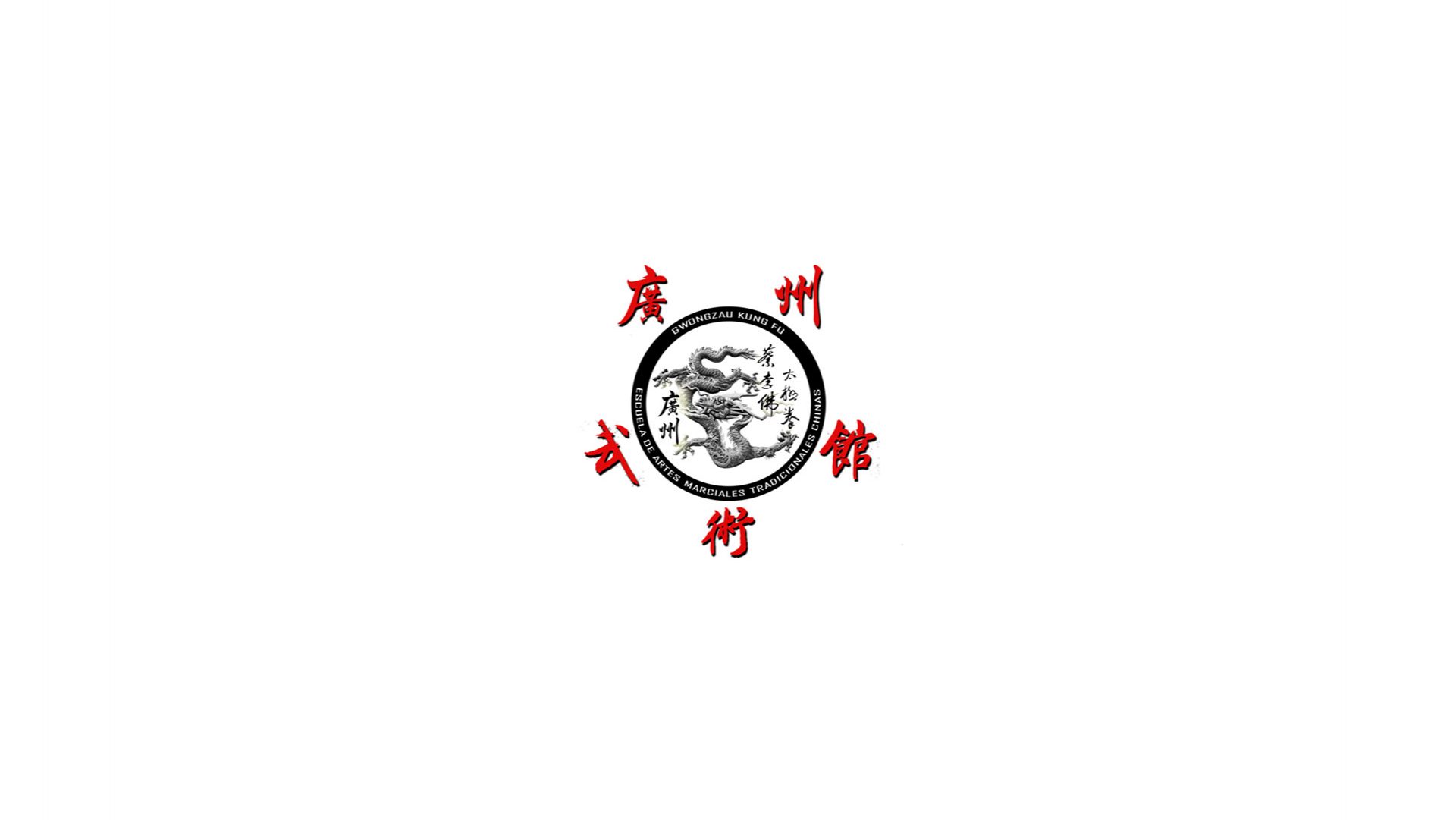A gōng'àn 公案 ("public case"; better known by its Japanese name, kōan) is a phrase, dialogue, or short story used in Chán 禪Buddhism to arouse doubts in the practitioner and test his understanding. In China, a Chán system of meditation was developed that based obtaining spiritual enlightenment on concentration on these phrases.
Gōng'àn as a means of instruction
The term gōng'àn comes from the expression gōngfǔ zhī àndú 公府之案牘 ("official correspondence", referring to legal public records), and is sometimes referred to as also gǔ zé 古則, "old case"; all of these terms are borrowed from legal jargon.
The gōng'àn are enigmatic, shocking fragments. They are often based on stories about Chán masters, or on dialogues between them and their disciples or other characters.
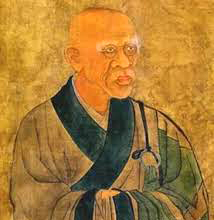
Master Zhàozhōu Cōngshěn 趙州從諗.
Gōng'àn: Do dogs have Buddha-nature?
Extracted from a dialogue of Zhàozhōu Cōngshěn 趙州從諗:
趙州和尚、因僧問、狗子還有佛性也無。州云、無。
A monk asked Zhàozhōu: "Even dogs have a buddhic nature?" Zhàozhōu replied: "No!".
* This answer was shocking because, according to mahāyāna Buddhism, all sentient beings have a Buddha-nature. This statement is also a common premise of all Chán Buddhism.
Gōng'àn were used to challenge the students' intuition. In Chán literature there are records of many students who attained sudden enlightenment by hearing a gōng'àn. The instructive use of gōng'àn is shared by all Chinese schools of Chán Buddhism.
At first, a story about a Chán master became a gōng'àn only when it was commented on or referred to by another master. In principle, only the words of the masters of the past were often cited as gōng'àn, and not those of other contemporary masters. Later on, other questions not associated with a particular master were included as gōng'àn, such as "what was your face like before your parents were born?".
Often, Chán masters wrote comments on certain gōng'àn, and from this custom a whole new genre of Buddhist literature developed. The commented compilations of gōng'àn were called niān gǔ 拈古 when the comment was written in prose, and sòng gǔ 頌古 when it adopted poetic form.
The Kànhuà system of Chán Buddhism
In China, a system of meditation was developed that considered gōng'àn-centered meditation as the only way to attain enlightenment. This system was called Kànhuà Chán 看話禪 or "Chán of Contemplating the Key Word", and it belongs to the Línjǐ 臨濟 school of Chán Buddhism.
This system was developed by Master Dàhuì Zōnggǎo 大慧宗杲 (1089-1163), one of the most famous Chán teachers of all time. According to Dàhuì, meditation focused on the punchline or keyword of a gōng'àn, called huàtóu 話頭, eventually leads to enlightenment.
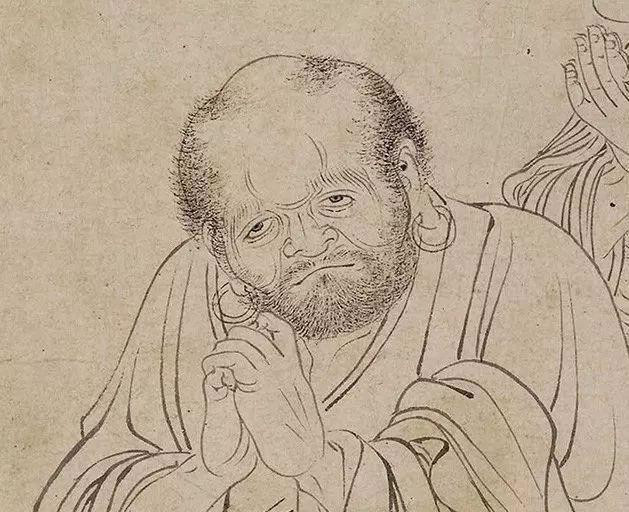
Dàhuì Zōnggǎo 大慧宗杲.
For Dàhuì, the goal is not achieving an intellectual understanding of the gōng'àn, not even focusing on the complete gōng'àn, but only on the huàtóu.
A gōng'àn should not be understood intellectually, but intuitively. Yuánwù Kèqín 圓悟克勤, Dàhuí's master, once said: "I have seen many students who simply tried to understand the meaning and comment on it, striving to achieve complete understanding. How is it possible to transcend birth and death? If one wants to succeed in transcending birth and death, it is necessary to open one's mind. The gōng'àn is the key to opening the mind. One has to understand the essential meaning beyond words, and only then will one come to the place where there is no doubt anymore."
Kèqín also thought that once one understands a gōng'àn, all other gōng'àn are understood simultaneously.
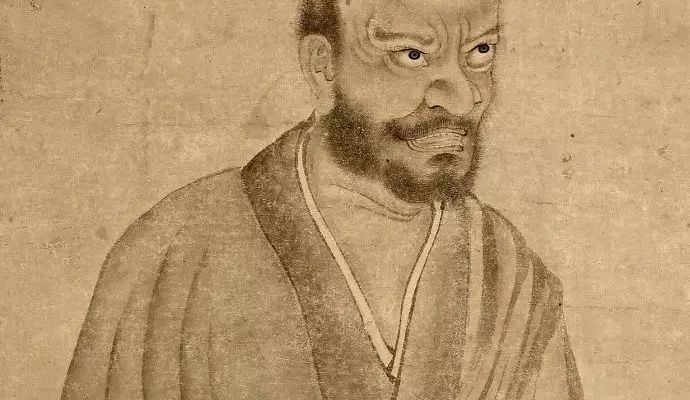
Línjì Yìxuán 臨濟義玄.
Gōng'àn: Killing the Buddha
逢佛殺佛。
If you meet the Buddha, kill him.
(Línjì Yìxuán 臨濟義玄)
It is necessary to distinguish between the practice of Kànhuà Chán and the use of gōng'àn for instructional purposes. This use already existed long before Dàhuì. Likewise, the idea that the understanding of a gōng'àn was a moment of enlightenment was also previous to Kèqín himself. It is also known that contemplation in the gōng'àn was already practiced before Dàhuì, albeit with some substantial differences.
Previous practice did not contemplate meditation in the gōng'àn as the only way to enlightenment, and it does not appear to be associated with concentration in a single fragment of the gōng'àn, the huàtóu. In addition, Dàhuì emphasized focusing on the huàtóu of a single gōng'àn, and criticized rambling among several gōng'àn. He was the first to highlight the need to focus solely on the gōng'àn, which in many cases could consist of a single word.
Dàhuì did not believe in a gradual progression towards enlightenment. It compared the act of enlightment to the shooting of an arrow: either it hits the targer or fails, but there is no midpoint.
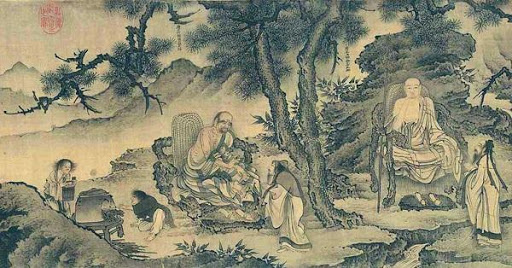
But how was it possible for Dàhuì that meditation in this gōng'àn keyword led to enlightenment? The practice of the kànhuà takes the practitioner to a point where it is not possible to conceptualize. For Dàhuì, focusing in the huàtóu was a way to concentrate all the doubts of the practitioner. Doubts take us away from enlightenment, but they are normal in the unenlightened person. The great doubt generated by the huàtóu is a way for the practitioner to forget all his other doubts, focused on the practice of the kànhuà. This doubt grows like a snowball, which eventually bursts taking with it all other doubts, and giving rise to enlightenment. Dàhuì wrote: "Great doubt is necessarily followed by great enlightenment."
Let us remember that Chán maintains the premise that all beings are already enlightened, but do not perceive it because of the doubts generated by common thought. Doubt is thus, for Dàhuì, a double-edged sword: if it is to be tied to the huàtóu it leads to enlightenment; if not, it's destructive.
The focus on the huàtóu was to be maintained at every moment of the day. Dàhuì insisted that this was the only way to enlightenment, excluding all other meditative practices, and thus contradicting the inclusive vision of his contemporaries, who accepted as valid all schools of Chán Buddhism.
It is believed that Dàhuì developed Kànhuà Chán in response to the boom that the Cáodòng 曹洞 school of Chán, which stood up for "silent enlightenment", was experiencing at that time.
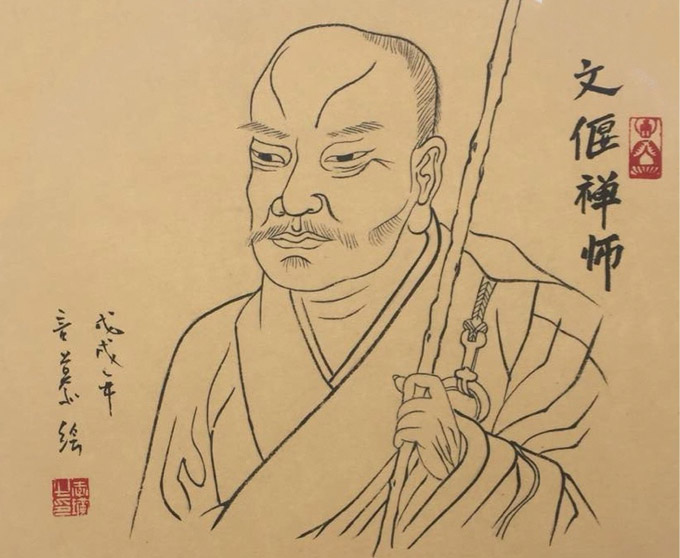
Master Yúnmén Wényǎn 雲門文偃.
Gōng'àn: What is the Buda?
Extracted from a dialogue of Yúnmén Wényǎn 雲門文偃:
雲門因僧問:如何是佛?門云:乾屎橛。
A monk asked Yúnmén, "What is the Buddha?". Yúnmén replied, "A dried shit stick".
* "A dried shit stick" (乾屎橛 gān shǐ jué) was a piece of elongated wood that was formerly used to clean oneself, instead of the most modern toilet paper.
